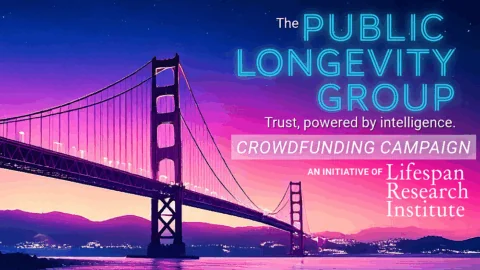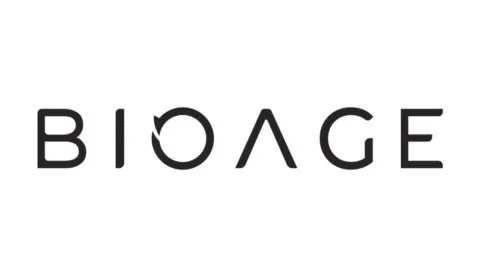BioAge Labs

Organization Description
Founded in 2015, BioAge Labs uses AI-based drug discovery and systems biology to target the pathways that affect aging. At the 39th Annual J. P. Morgan Healthcare Conference on July 12, 2021, Dr. Kristen Fortney, CEO of BioAge Labs, gave a presentation on her company’s goals, funding, and approach. She discussed the strategy of targeting indications that work against aging in general in the long term but are targeted against more immediately treatable conditions in the short term. BioAge’s drug discovery platform is longitudinal in nature, and it consists of the personal medical records and eventual longevity outcomes of a large number of human beings in order to create a detailed map of how we age, including proteins, metabolic issues, and genetic transcription. BioAge believes that directly intervening in the processes of aging is the best path forward for dealing with age-related diseases and increasing healthspan among older people.
On the financial front, BioAge has raised an initial Series A round of $10.9 million dollars along with later rounds of $23 million and $90 million from investors eager to combat age-related diseases. In September 2024, BioAge went public, raising US$200 million in an IPO. In January 2026, BioAge announced that they were issuing a further underwritten public offering of 5,897,435 shares of its common stock, which was soon upsized to $19.50, leading to an anticipated $115.0 million in gross proceeds. This offering followed days after the announcement of favorable results from early-stage trials with BGE-102, a brain-penetrant small-molecule inhibitor of the NLRP3 inflammasome.
BioAge Drug Development Pipeline
BGE-117
BioAge had in-licensed this drug as it targets hypoxia-induced factor (HIF), which the company’s platform identified as being associated with physical and cognitive abilities along with extended lifespan. HIF-1 affects blood cell production, the remodeling of vasculature, and how we metabolize glucose.
In an initial trial in persons with chronic kidney disease, BGE-117 was found to be safe and well-tolerated. BioAge launched Phase 2a trial of BGE-117 in 2021 for unexplained anemia of aging in people over 65, and another in 2022 for older persons with moderate to severe anemia following major hip surgery. Both trials have been withdrawn and BioAge does not currently (July 2025) list BGE-117 in its pipeline.
BGE-175 (Asapiprant)
BGE-175 was a prostaglandin D2 DP1 receptor antagonist, originally developed for allergic rhinitis but licensed as a potential treatment for COVID-19 in older patients without respiratory failure. This was based on BioAge’s AI platform having identified PGD2 DPI receptor as a key target for immune aging in its analysis of BioAge’s human longitudinal datasets. In an aging mouse COVID-19 model, BGE-175 reversed the age-related delay dendritic cell migration and exaggerated neutrophil infiltration, thus lowering damaging inflammation and enhancing immune response, leading to increased survival. BioAge began a Phase II trial of BGE-175 in older patients with COVID-19 in March of 2021, but terminated the trial and discontinued work on BGE-175 due to too few hospitalizations. A class action lawsuit has been filed on behalf of investors based on allegedly misleading statements made by BioAge regarding this drug.
Azelaprag
Azelaprag (BGE-105) is an oral agonist of the apelin receptor APJ. It mimics the activity of the exerkine apelin, a peptide that is released in response to exercise. In mice, apelin levels decline with age; by contrast, activation of apelin signaling reverses age-related sarcopenia. By targeting apelin signaling, apelin receptor agonists such as azelaprag could treat multiple disabling and deadly geriatric conditions, improving muscle strength in frail patients, accelerating rehabilitation following fractures, and increasing mobility after extended bed rest.
In a partnership with Eli Lilly, BioAge hoped to show that azelaprag would increase weight loss and retain muscle mass in persons taking incretin agonist drugs. BioAge discontinued azelaprag in January 2025 as a result of possible toxicity uncovered during STRIDES, a Phase II clinical trial of azelaprag alone and in combination with tirzepatide in obese adults over the age of 55. Eleven subjects in one or another azelaprag arms developed elevated liver transaminases without clinically significant symptoms. At the same time, BioAge announced that they were working to develop alternative, structurally distinct APJ agonists, lead-optimizing one oral and one subcutaneous lead candidate, “with the goal of nominating a development candidate by the end of 2025.”
BGE-102
BGE-102 is a novel, orally-available, small-molecule inhibitor of the NLRP3 inflammasome that penetrates the blood-brain barrier and has the potential to address a range of metabolic and neuroinflammatory conditions. NLRP3 is a component of the inflammasome, a protein complex that assembles in response to infection and tissue damage and results in inflammation needed to promote healing, but chronic inflammation drives a vast number of immunologic and fibrotic disorders, and NLRP-driven neuroinflammation disrupts appetite regulation in the brain. The company has reported that BGE-102 and related molecules inhibit the NLRP3 inflammasome through a binding site and mechanism that are distinct from other NLRP3 inhibitors in development.
BioAge has indicated that their initial indication will be obesity. The company has reported that preclinical obesity models, BGE-102 monotherapy achieved dose-dependent weight loss of up to 15%, which is comparable to semaglutide, and exerts additive effects in combination with that drug, leading to a 25% overall reduction in body weight.
BioAge completed IND-enabling studies of BGE-102 in March 2025, reporting a strong safety profile in GLP toxicology studies. In August 2025, BioAge announced that they had dosed the first volunteer in their randomized, double-blind, placebo-controlled Phase I clinical trial, beginning with single ascending dose and proceeding to multiple ascending doses administered once daily for 14 days. In addition to pharmacokinetics, the trial will assess CNS penetration through cerebrospinal fluid sampling, and evaluate pharmacodynamics via an ex vivo whole blood stimulation assay, measuring the production of inflammatory markers such as IL-1β.
On December 4, 2025, BioAge announced positive interim data from their ongoing Phase I single ascending dose/ multiple ascending dose (SAD/MAD) trial of BGE-102. The drug was well-tolerated four ascending doses in the SAD and the two higher of these doses (60 and 120 mg daily) in the MAD. The pharmacokinetics were dose-proportional, and in in an ex vivo whole blood stimulation assay, 60 mg and 120 mg led to 90 and 98% reductions in IL-1β production, respectively. In the MAD groups, BGE-102 doses of 60 mg and higher achieved plasma and cerebrospinal fluid (CSF) concentrations in excess of the IC90 for 24 hours and after 14 days, respectively.
On January 12, 2026, BioAge announced additional positive interim data from the ongoing Phase I trial. The MAD cohort comprised obese individuals with BMI 32–42 and elevated high-sensitivity C-reactive protein (hsCRP >3 mg/L). In these subjects, the 120 mg daily dose lowered hsCRP by 86% at Day 14, with 13 of 14 subjects achieving hsCRP levels below 2 mg/L, which is the accepted threshold for cardiovascular risk.
BGE-102 also reduced serum interleukin-6 (IL-6) by 44% at Day 14, and lowered CSF IL-6 in the two volunteers with elevated baseline levels,
Just over a week later, BioAge announced that they were expanding their BGE-102 development program with a proof-of-concept study in patients with diabetic macular edema (DME). In DME, elevated blood sugar triggers NLRP3 activation, leading the fine blood vessels of the macula (the central zone of the retina that is associated with detailed vision) to leak and damaging vision. They further said that they were considering expanding the target indications for BGE-103 into additional retinal diseases driven by the NLRP3 inflammasome, including geographic atrophy (the untreatable form of age-related macuar degeneration).
Cardiometabolic Program
BioAge indicates that as of July 2025, they are in the discovery phase on undisclosed cardiometabolic candidates, two of them in partnership with Eli Lilly.
Undisclosed Targets
In December 2024, BioAge announced a multi-year collaboration with Novartis “to identify and validate multiple novel therapeutic drug targets by investigating the biological mechanisms that drive diseases related to aging and mediate the beneficial effects of physical exercise.”




